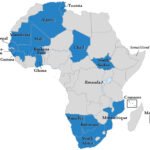Ghana’s President John Dramani Mahama has officially dismissed Chief Justice Gertrude Torkornoo following the recommendations of an investigative committee.
The move ends a period of suspension that began in April, after complaints were lodged against the Chief Justice by three individuals.
The complaints prompted President Mahama to establish a five-member committee tasked with examining allegations of misconduct and making appropriate recommendations. The committee concluded its inquiry and advised that Justice Torkornoo be removed from office, citing instances of “misbehaviour” that warranted action.
Justice Torkornoo has publicly denied the allegations, asserting that they are unfounded and politically motivated. During her suspension, she had challenged the decision in court and also filed a case with the ECOWAS Community Court in Abuja, Nigeria, claiming her constitutional rights had been violated.
The dismissal has sparked varied reactions across Ghana. Supporters of President Mahama’s decision argue that it reinforces accountability and integrity within the judiciary, while critics contend that the process lacked transparency and due process protections.
Also Read; Tanzania Begins Large Irrigation Project In Tabora Region
The case has brought renewed focus on the independence of the judicial system in Ghana, highlighting the delicate balance between oversight and judicial autonomy.
In the interim, Justice Paul Baffoe-Bonnie, the most senior judge on the Supreme Court, has been appointed Acting Chief Justice to ensure continuity within the judiciary until a permanent successor is named. This move is intended to maintain stability in the country’s highest court and safeguard ongoing judicial proceedings.
The removal of Justice Torkornoo marks a significant moment in Ghana’s legal and political landscape, raising questions about judicial accountability, the powers of the presidency, and the processes for addressing allegations against high-ranking officials.







